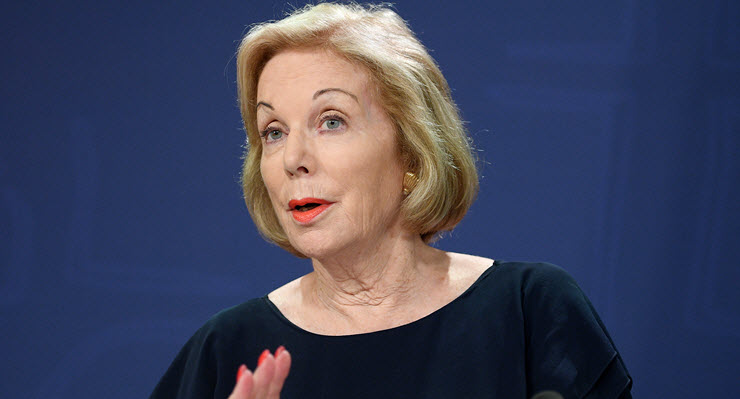
The ABC’s pending revenue deal with Google is problematic. Although it and its staff will undoubtedly be grateful for any respite, the broadcaster’s move to join Google’s News Showcase, worth tens of millions each year, poses an unacceptable risk to its obligations to the Australian people.
The ABC has been in these compromising positions before. In 2000 then-managing director Brian Johns was negotiating with Telstra over a $67 million contract to supply the phone company’s broadband portal with ABC-produced content.
In the public outcry which provoked a Senate inquiry, a Telstra executive famously said: “What we do think we are buying is the ABC’s integrity, honesty and independence.” The deal fell over when new managing director Jonathan Shier, assisted by consultants from Macquarie Bank, told the ABC board the commercial obligations to be imposed were too onerous.
And in 1995 the ABC, through a subsidiary company AIM, entered a fully commercial consortium partnership with Fairfax Media and Cox Communications US to establish ABC pay TV news to be built off the back of its free-to-air news services.
Over time AIM was meant to deliver substantial revenues to the ABC. The Keating government reluctantly contributed money for the venture. But it failed when cable operators Foxtel (part owned by Rupert Murdoch’s News Corp) and Optus (major shareholder: Kerry Packer) declined to take the news service.
It was noted at the time that it was unlikely Murdoch or Packer were concerned about the risk of compromising ABC independence. It had more to do with not allowing hated rivals Fairfax or Cox a laneway on Australia’s then potentially lucrative pay TV multi-channel superhighway. The two moguls then set up Sky News Australia, now fully owned by News Corp.
In the federal government’s draft bill for a mandatory revenue-sharing code for tech giants Google and Facebook, the ABC and SBS have been included as beneficiaries. This was originally proposed by the Australian Competition and Consumer Commission’s chairman Rod Sims. But Sims was overruled by Communications Minister Paul Fletcher and ABC and SBS would be excluded from any tech revenue.
But as the real politicking started, suddenly ABC and SBS were back in, apparently as a tactic to secure the safe passage of the bill through the Senate.
As the ABC now negotiates with Google and watches intently to see if Facebook comes back to the negotiating table, the risk of compromise to the ABC should be confronted.
The ABC has said it will spend any money it receives on regional services; Fletcher has said the government would allow the ABC to keep its Google cash. But the precedent raises the risk of a commercial future for the ABC.
Commerciality can only weaken the ABC’s case for taxpayer funding of a public broadcaster or “cybercaster” as a public good, contributing to media diversity as private media companies fight to survive in a disrupted digital economy. It will also encourage those hostile to the ABC who campaign for its privatisation.
It is hard to ask the ABC not to take much-needed revenue, and the ABC is certain to reject this call as unnecessary as safeguards will be put in place to ensure there is no compromise to its editorial independence. But it remains one of the few public broadcasting systems in the world to survive with its non-commercial integrity intact.
After the bushfires and the pandemic, the ABC, with all its faults, is Australia’s media industry leader, with a higher audience than News Corp, Nine Entertainment and all other online players. A contributing factor in that achievement has been the trust which comes from a public interest objective enshrined in the ABC’s legislated charter.
Quentin Dempster is a director of ABC Alumni, a group of former staff committed to the ABC’s role in Australia’s national life. He is also a former staff designate member of the ABC board and distinguished journalist.
Private Media, the publisher of Crikey, is part of Google’s News Showcase.







“Here’s 30 pieces of silver – go out and spend it in lieu of the equal funding we were going to give you, but aren’t now. And thanks for coming in, to let us hide behind you, as an excuse for going after these ‘international greedy’s’ funds, to give to Stokesy, Cossy and international greedy Rupert.”?
Well argued. The ABC belongs to us taxpayers & should avoid lying down with dogs for a dollar.
Tragically, it’s being slowly starved of legitimate funding by a succession of Coalition governments beholden to Murdoch. Meantime Foxtel received $40M for we’re-not-exactly-sure- what….reminiscent of an impromptu gift with which a lover surprises another.
I was offended that the ABC even had a Facebook page & was irritated every time a presenter urged the viewers to participate via it.
Also relevant for other media outlets including SBS, The Guardian and The Conversation who claim to be independent, and are not compromising so much for Google but for NewsCorp et al. and the government’s legislation; moral hazard.
Just as with the “increase in jobseeker”, which gives a measly 100 /month, and curbs top up earnings by $300 / month, the rapacious goon squad known as the Morrison guvmint will see it as a further reason to defund Our ABC, oh when we be free of this blighted, corrupt LNP coterie of spivs and grifters
Take the $ ABC. This is a rock and a hard place decision. In this era of ‘disruption’ there have to be compromises along the way to avoid becoming irrelevant. The Feds Media Law was ridiculously in favour of commercial media. This keeps ABC in the game. Let’s Google It ABC.
Integrity!